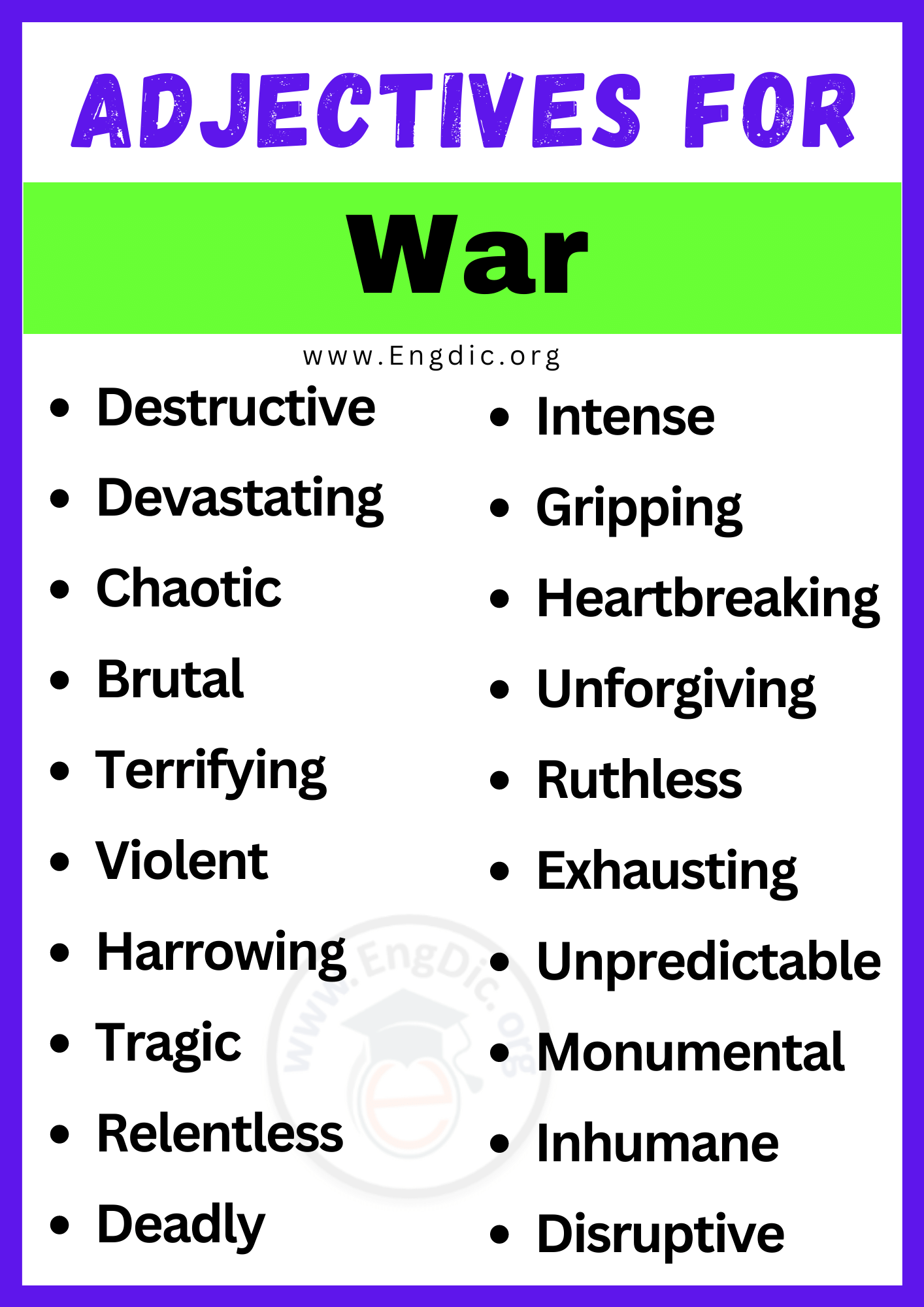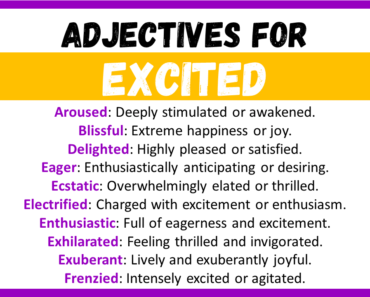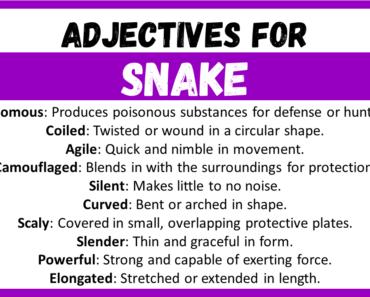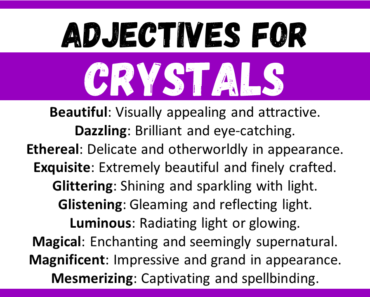War, simply put, is a state of conflict and hostility between nations or groups, characterized by the use of armed forces and violence. It is a complex and devastating phenomenon that impacts societies on multiple levels. When we try to capture the essence of war in words, it is difficult to escape the gravity and gravity of the situation. From “chaos” and “destruction” to “courage” and “sacrifice,” the vocabulary used to describe war encompasses a wide range of emotions, actions, and consequences. These words paint a vivid picture of the immense challenges and human experiences that emerge from the ravages of war.
Adjectives for War
Here are the 20 Most Popular adjectives for war:
- Destructive
- Devastating
- Chaotic
- Brutal
- Terrifying
- Violent
- Harrowing
- Tragic
- Relentless
- Deadly
- Intense
- Gripping
- Heartbreaking
- Unforgiving
- Ruthless
- Exhausting
- Unpredictable
- Monumental
- Inhumane
- Disruptive
Adjectives for war movies:
- Intense
- Gripping
- Suspenseful
- Action-packed
- Realistic
- Gritty
- Emotional
- Graphic
- Epic
- Powerful
Adjectives for war stories:
- Compelling
- Riveting
- Authentic
- Poignant
- Heroic
- Gritty
- Heart-wrenching
- Inspiring
- Dramatic
- Impactful
Adjectives for war poems:
- Evocative
- Haunting
- Reflective
- Raw
- Melancholic
- Symbolic
- Eloquent
- Intimate
- Resonant
- Thought-provoking
Adjectives for war zones:
- Dangerous
- Hostile
- Tense
- Ravaged
- Volatile
- Desolate
- Chaotic
- Restricted
- Militarized
- Scarred
Words to Describe a War with Meanings
- Destructive: Causing extensive damage or destruction.
- Devastating: Overwhelmingly destructive or emotionally crushing.
- Chaotic: Characterized by disorder, confusion, and unpredictability.
- Brutal: Extremely cruel, harsh, and merciless.
- Terrifying: Filling with intense fear or dread.
- Violent: Involving force or physical aggression.
- Harrowing: Disturbing and deeply distressing.
- Tragic: Involving extreme sadness or loss.
- Relentless: Persistent and unyielding in intensity or severity.
- Deadly: Causing or capable of causing death.
- Intense: Extremely strong or forceful.
- Gripping: Holding attention firmly or compellingly.
- Heartbreaking: Causing overwhelming sadness or grief.
- Unforgiving: Showing no mercy or leniency.
- Ruthless: Showing no pity or compassion.
- Exhausting: Physically or emotionally draining.
- Unpredictable: Not able to be anticipated or foreseen.
- Monumental: Massive or significant in scale or impact.
- Inhumane: Lacking compassion or humanity.
- Disruptive: Causing disturbance or interruption.
Example Sentences for War Adjectives
- The destructive force of war ravaged the city.
- The aftermath of the bombing was devastating.
- War often leads to chaotic situations and displacement.
- The soldiers witnessed brutal acts of violence.
- The sound of gunfire was terrifying for the civilians.
- The conflict escalated into a violent confrontation.
- The war experience was harrowing and traumatizing.
- The loss of innocent lives was tragic.
- The enemy’s resistance was relentless and fierce.
- The battlefield was filled with deadly threats.
- The soldiers endured intense combat conditions.
- The war documentary was gripping and emotional.
- The sight of wounded soldiers was heartbreaking.
- The opposing side showed unforgiving cruelty.
- The commander’s tactics were ruthless and efficient.
- The soldiers were physically and emotionally exhausted.
- The outcome of war was unpredictable and volatile.
- The war had a monumental impact on the nation.
- The treatment of prisoners was inhumane and cruel.
- The war had a disruptive effect on the economy.
Explore More Words:
Best Words to Describe a Warrior
FAQ’s
How to describe war in writing?
To describe war in writing, use vivid and descriptive language to convey the chaos, violence, and emotional impact. Show the devastation, the human experiences, and the consequences of war through powerful imagery and sensory details.
How do you write a good war scene?
To write a good war scene, focus on creating a sense of tension and urgency. Describe the sights, sounds, and smells of the battlefield. Show the characters’ emotions and reactions, and highlight the stakes and consequences of the conflict. Use concise and impactful language to engage the reader and evoke a sense of realism.








